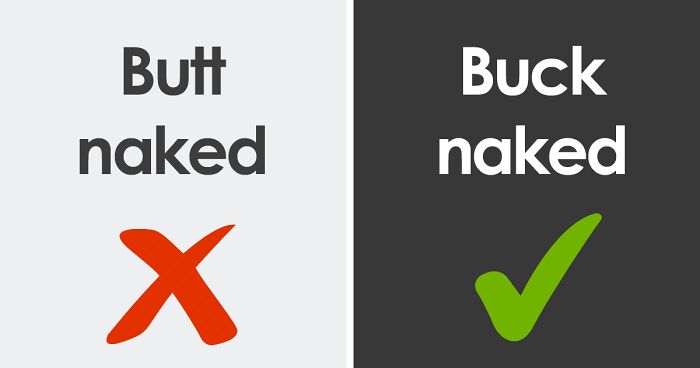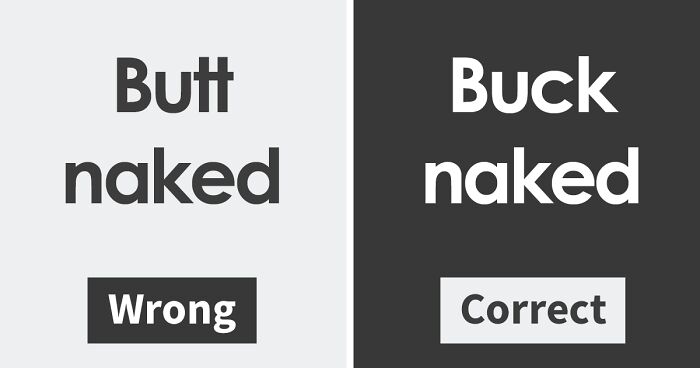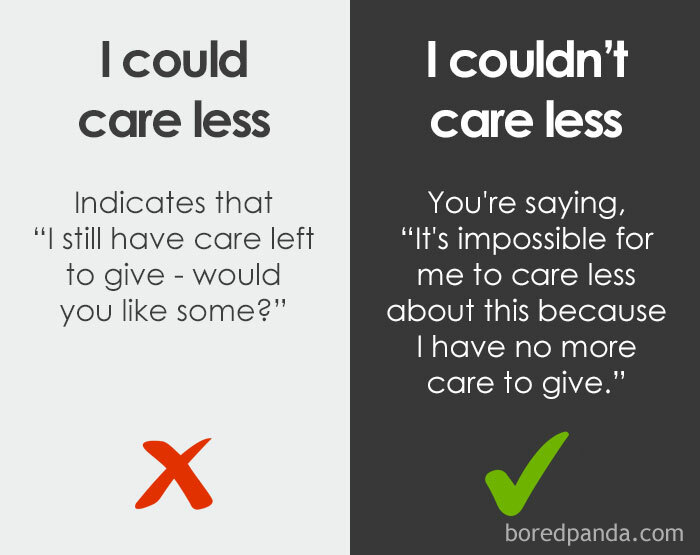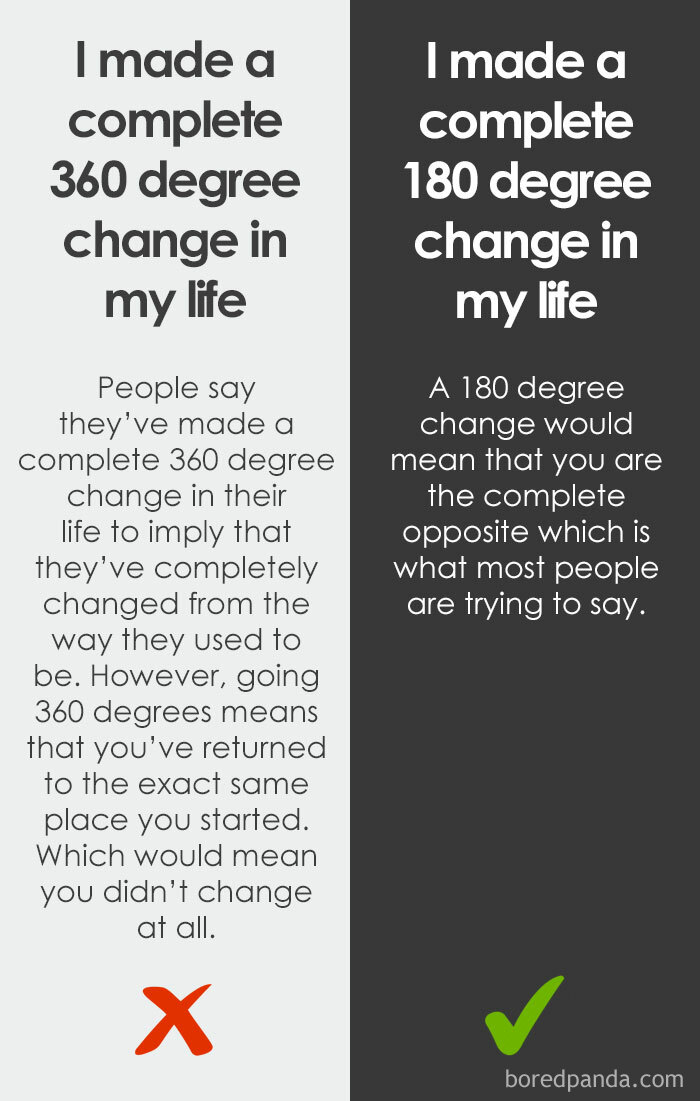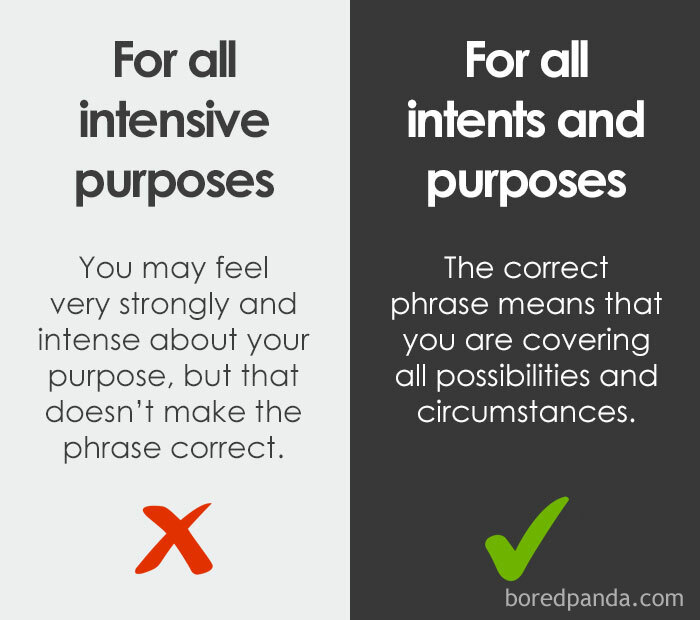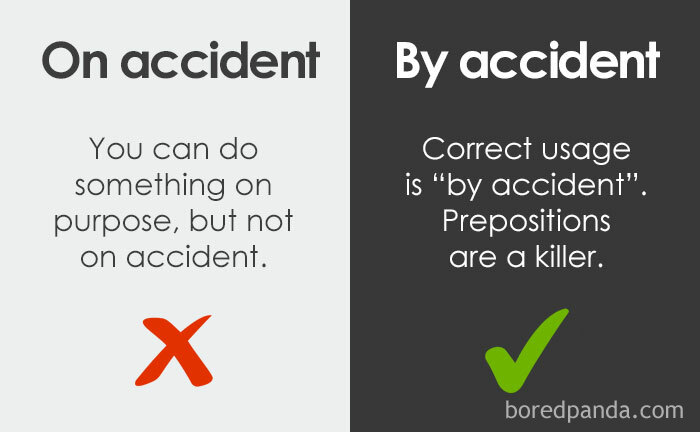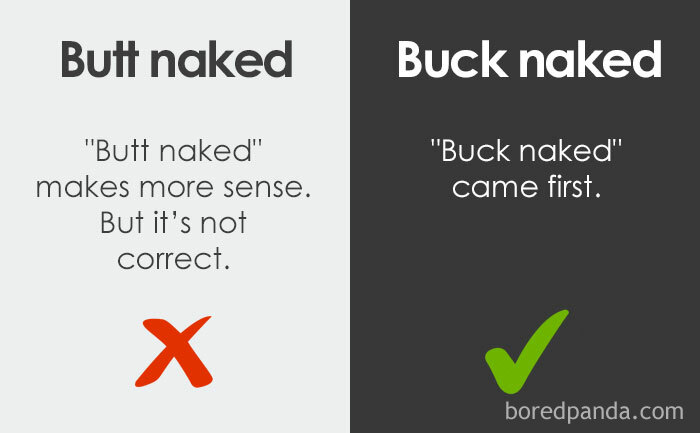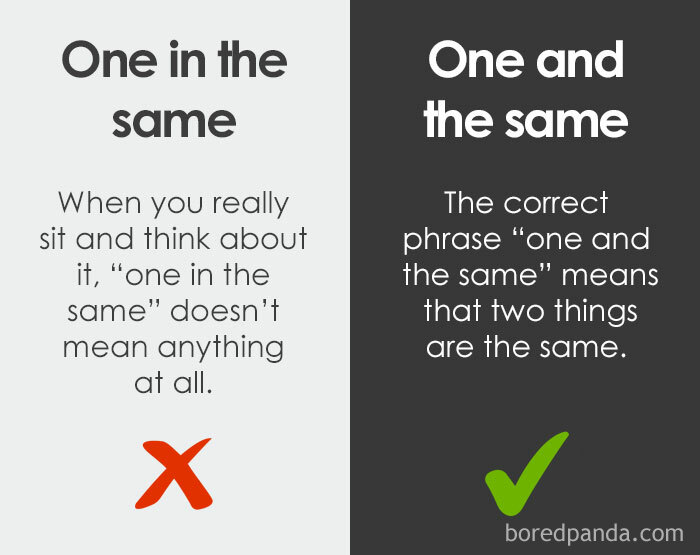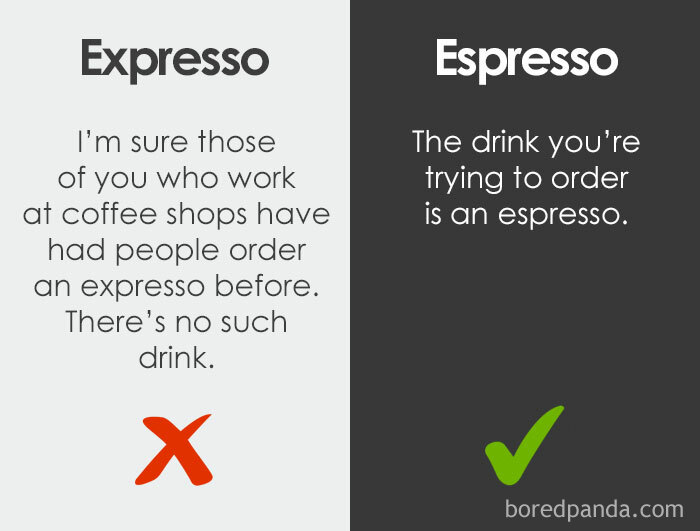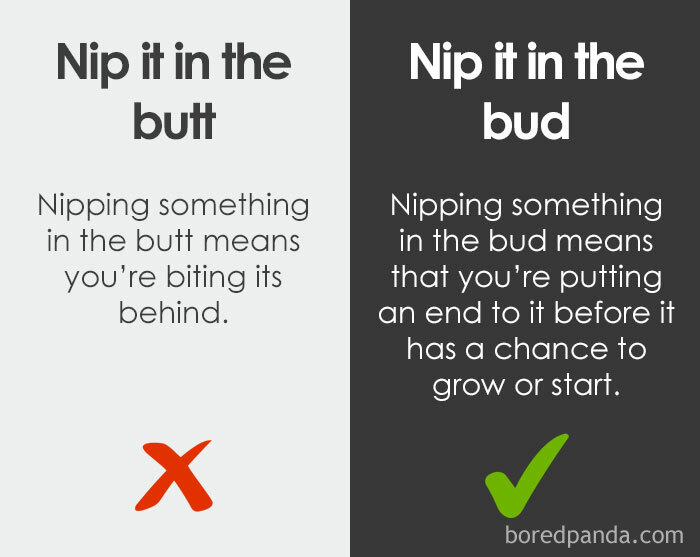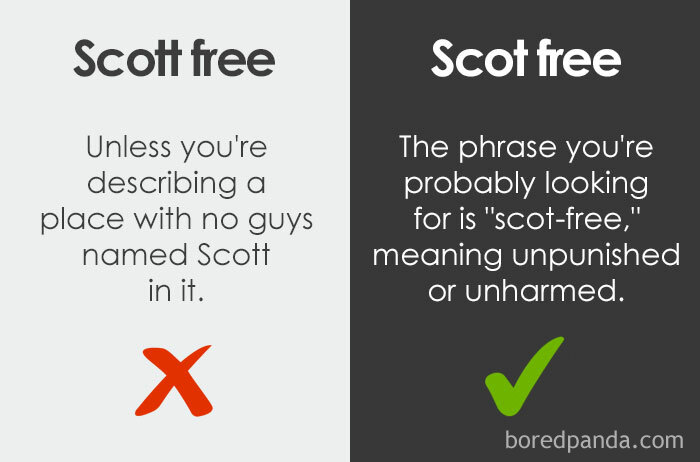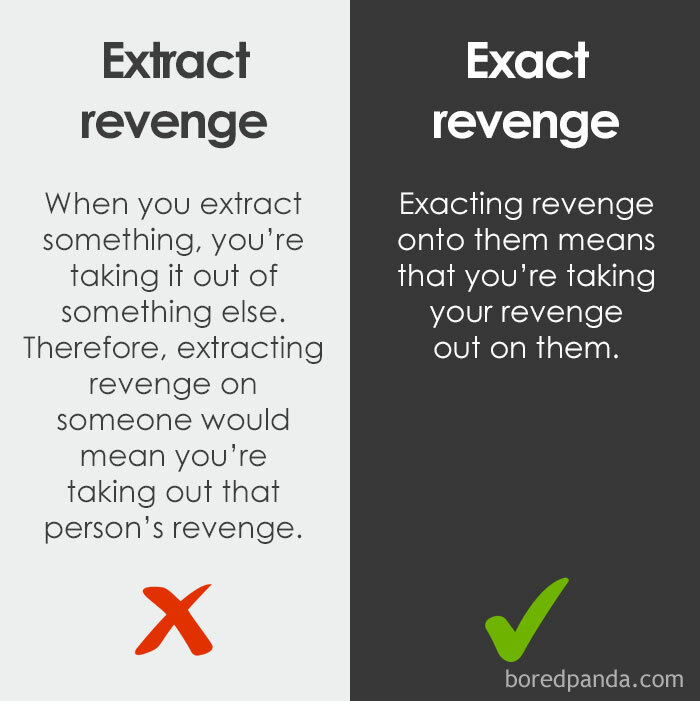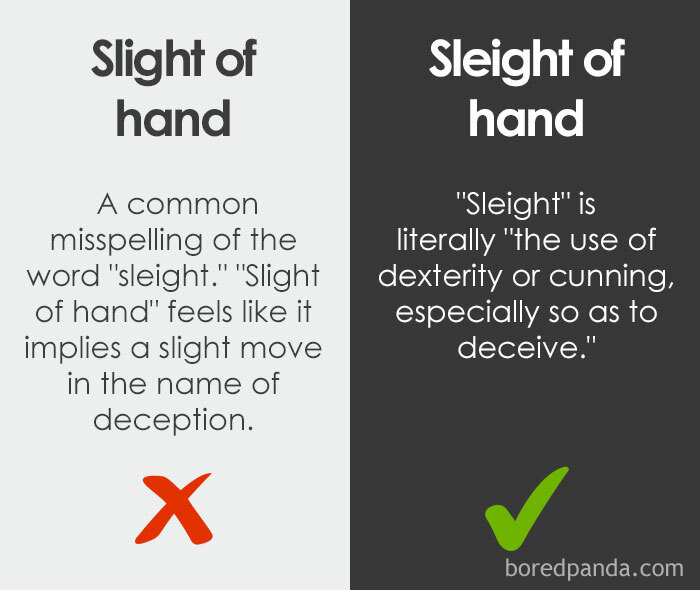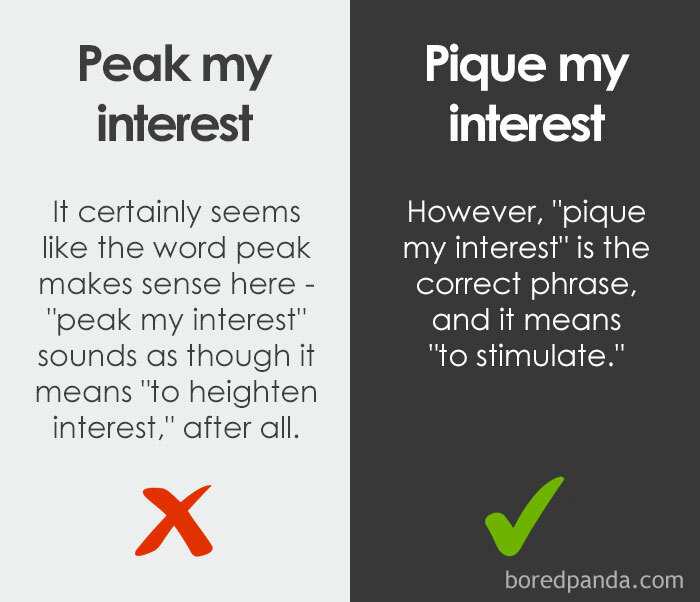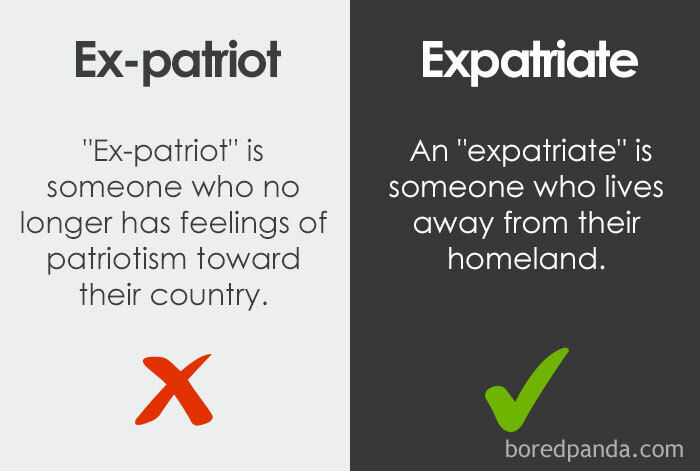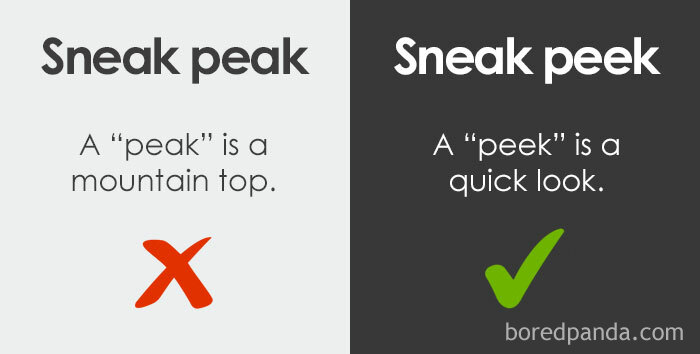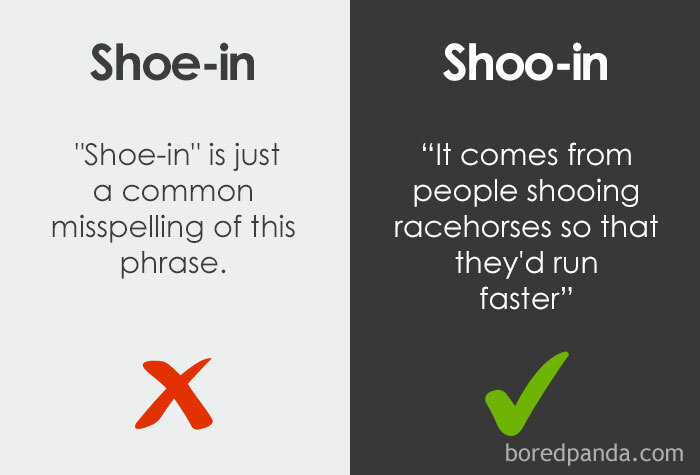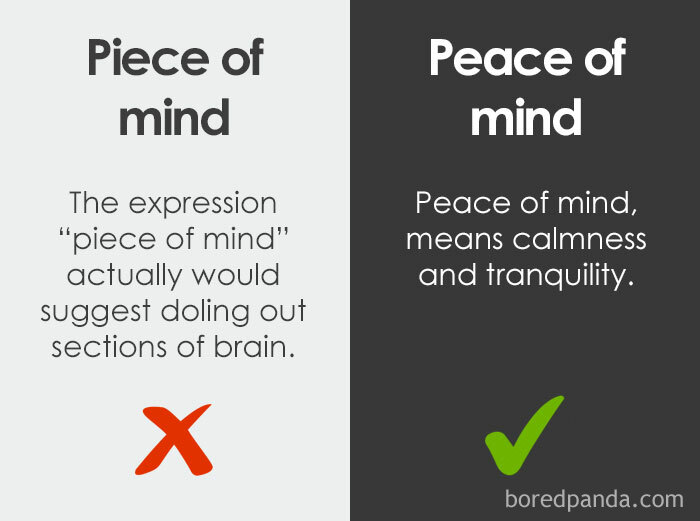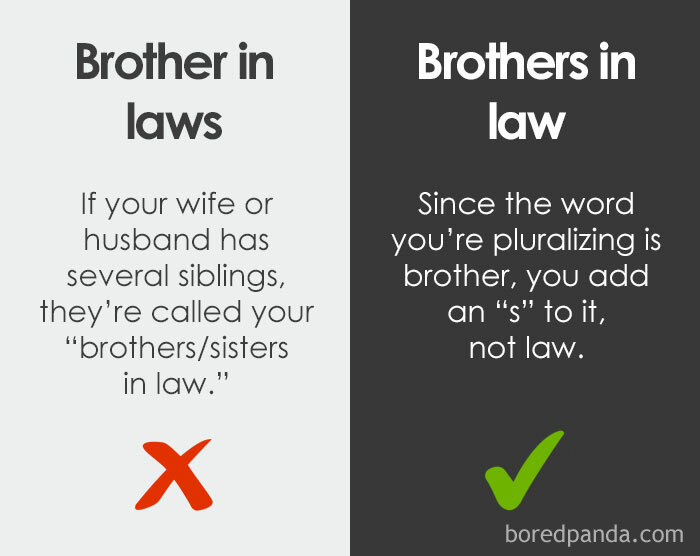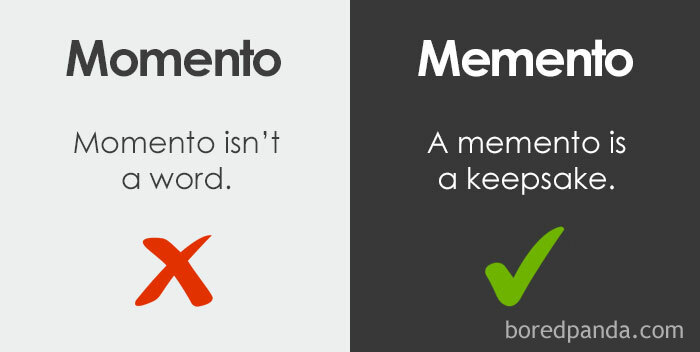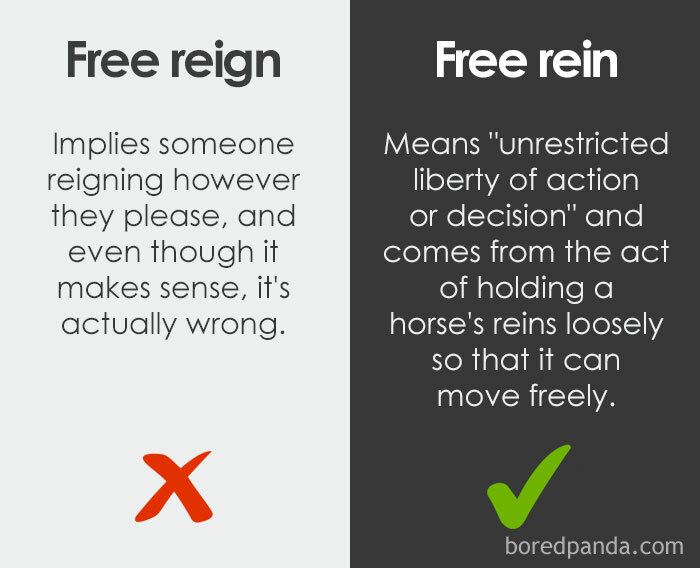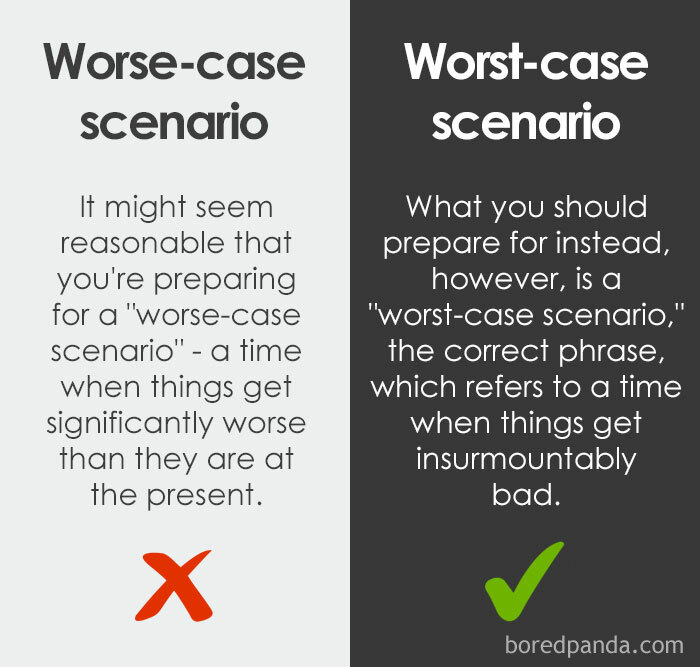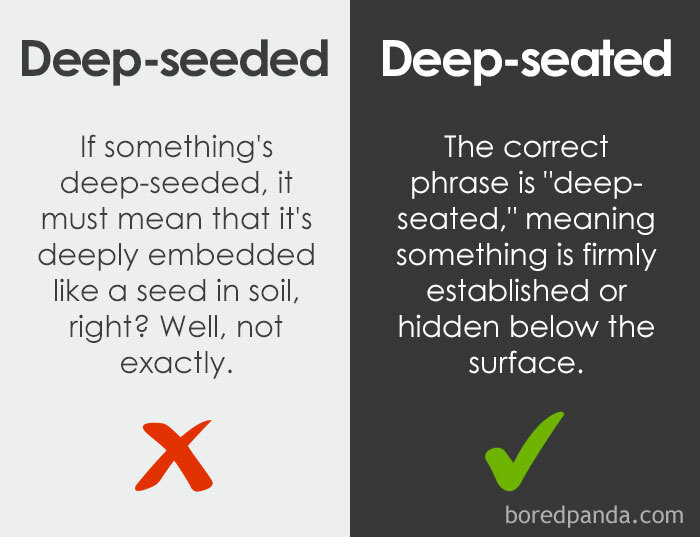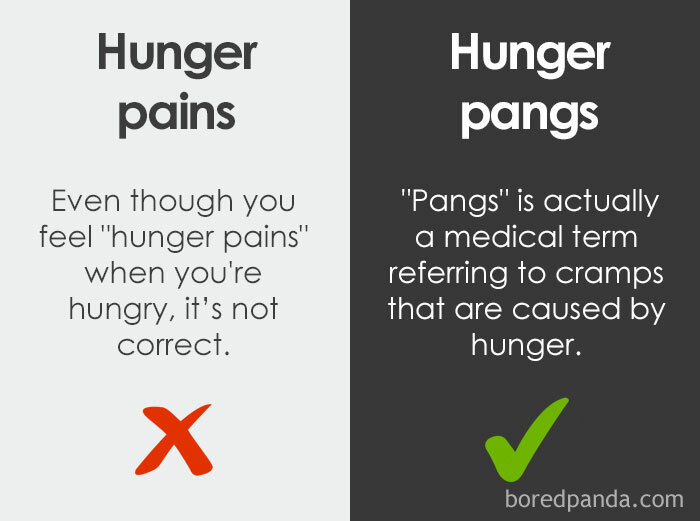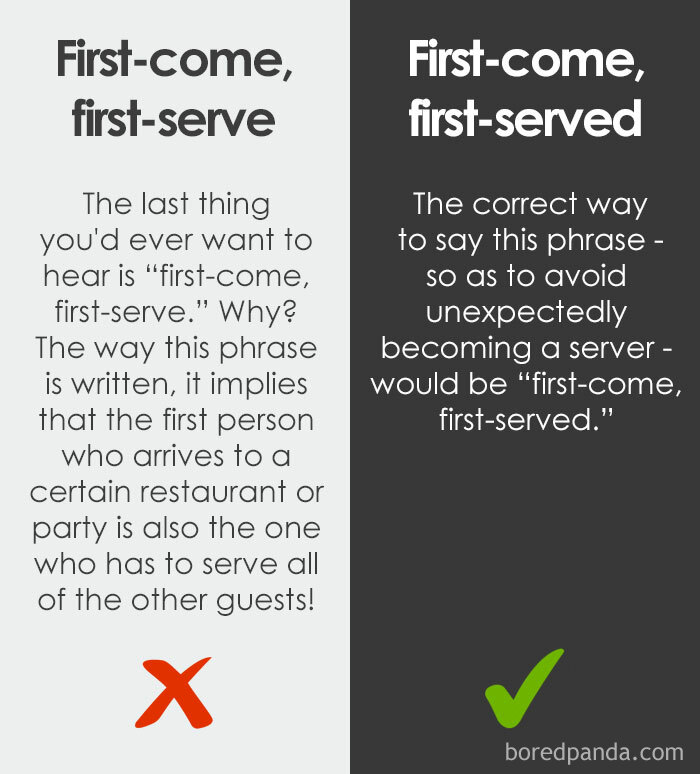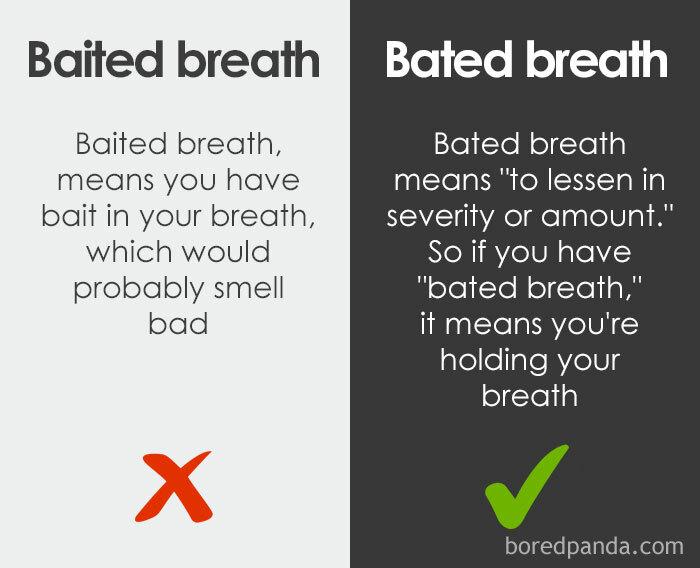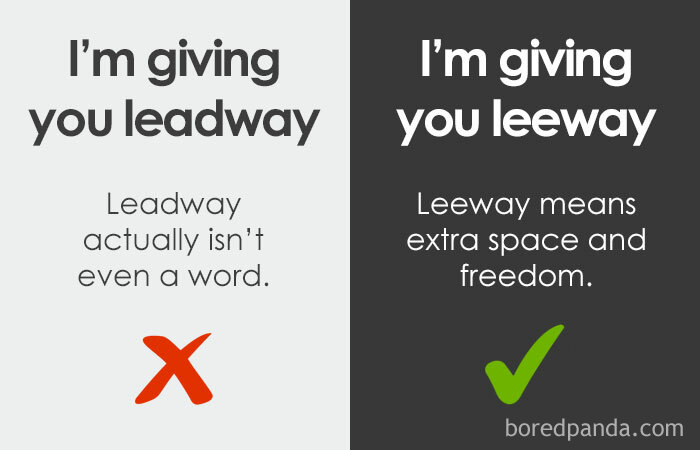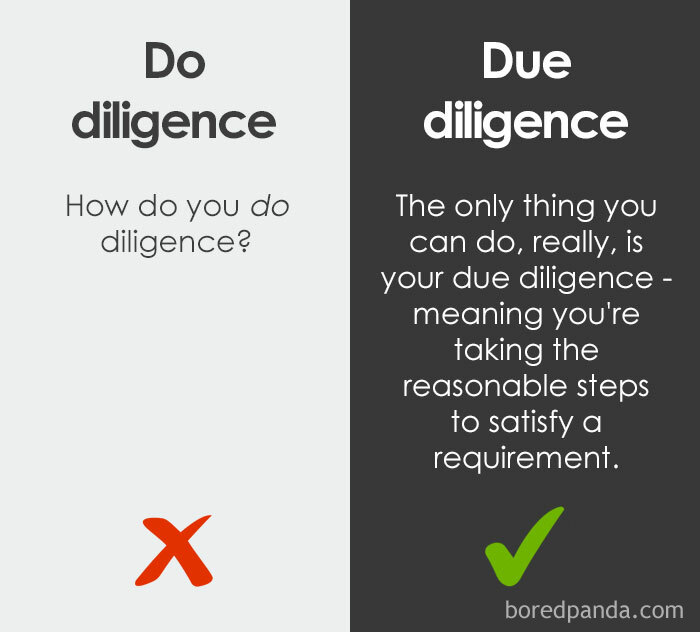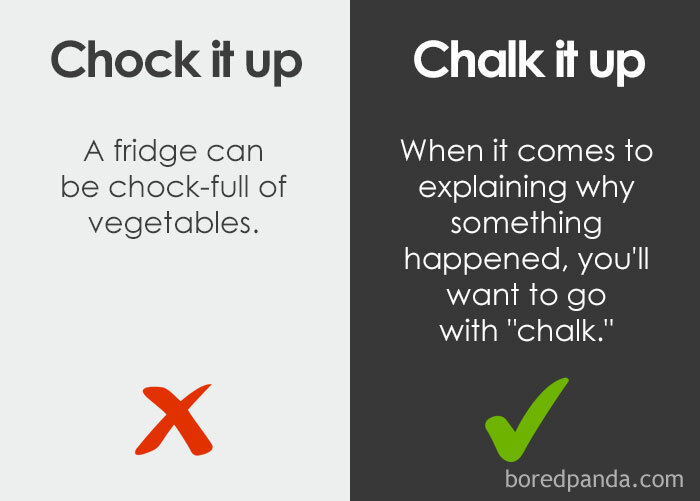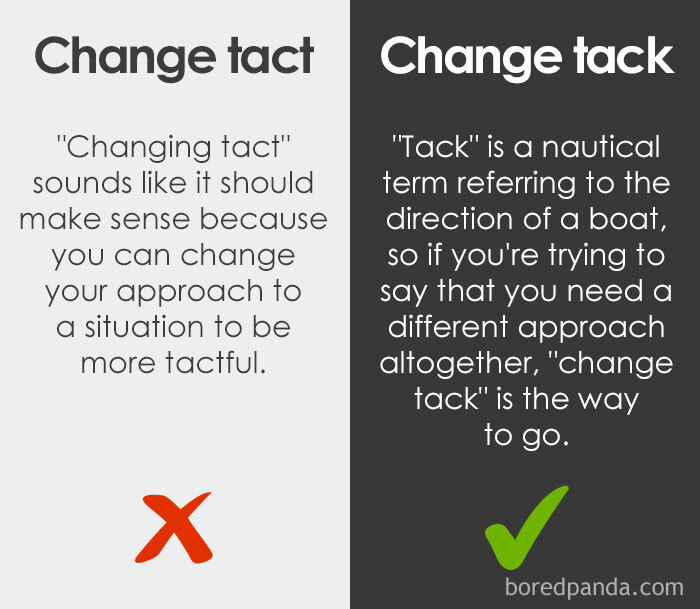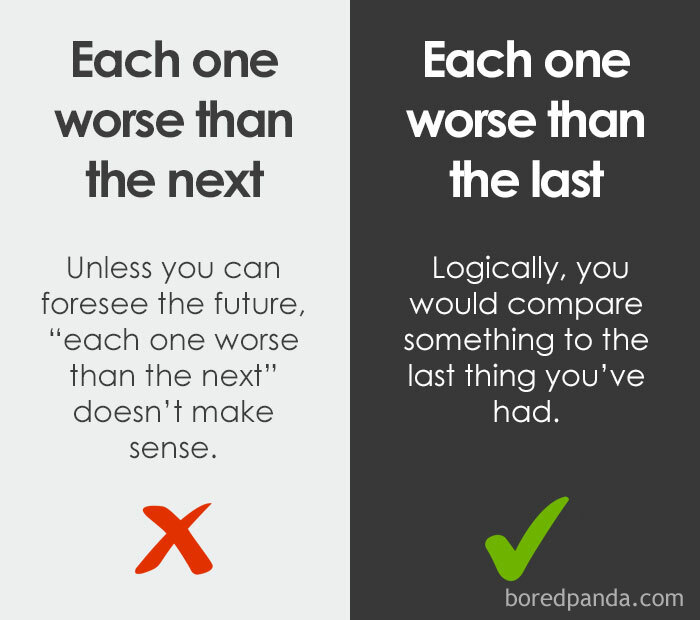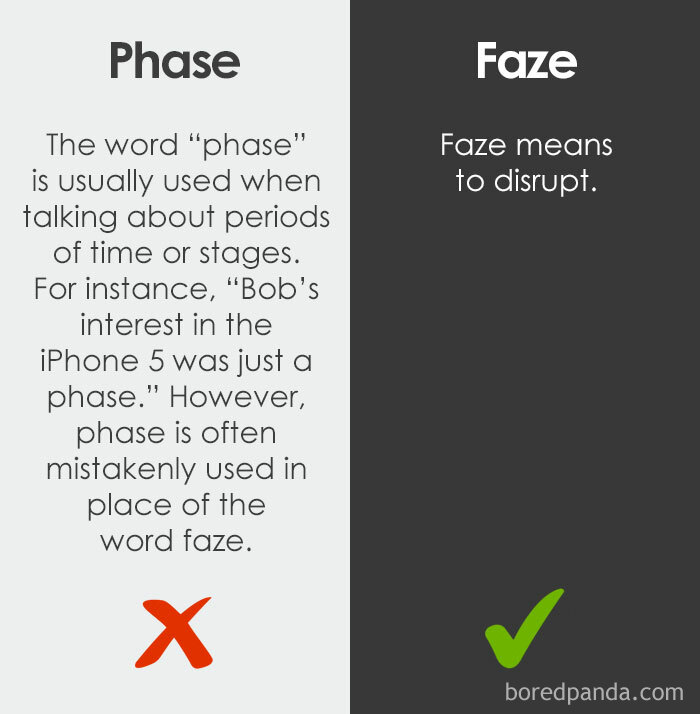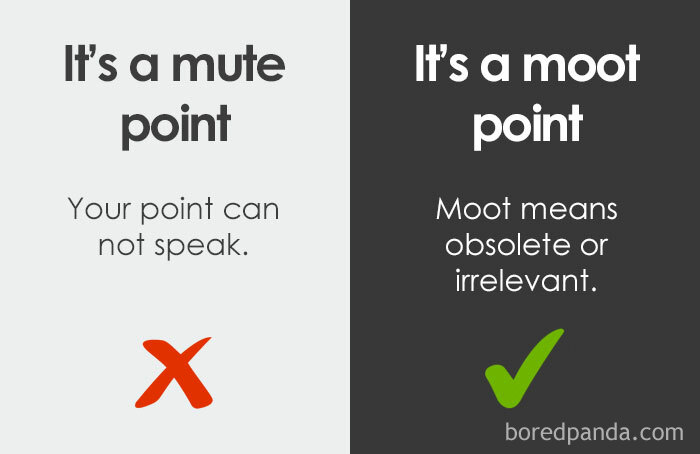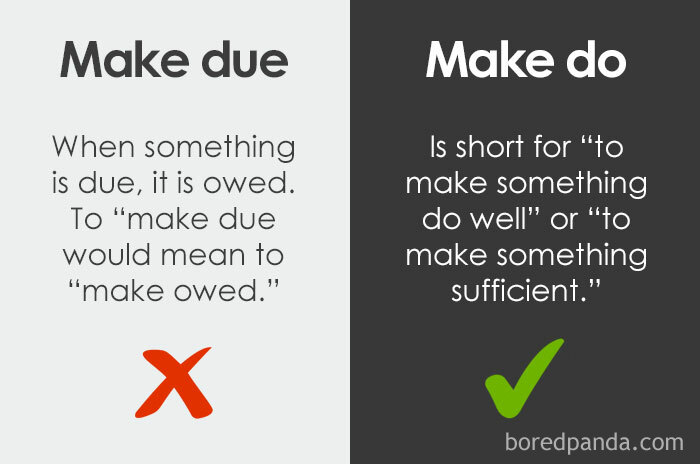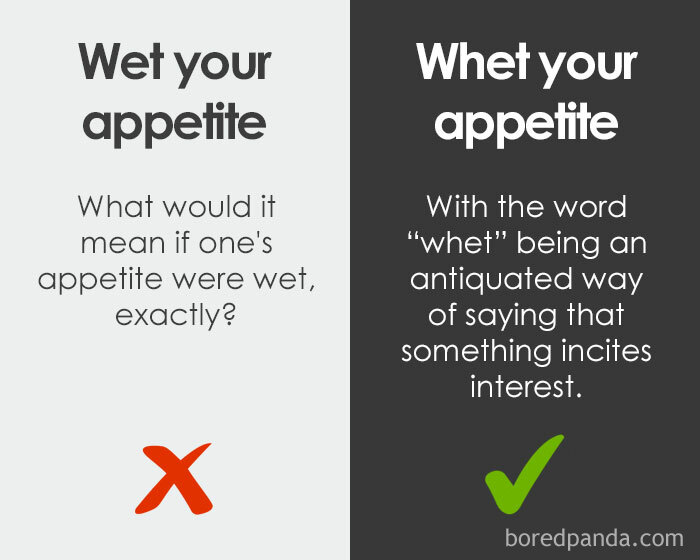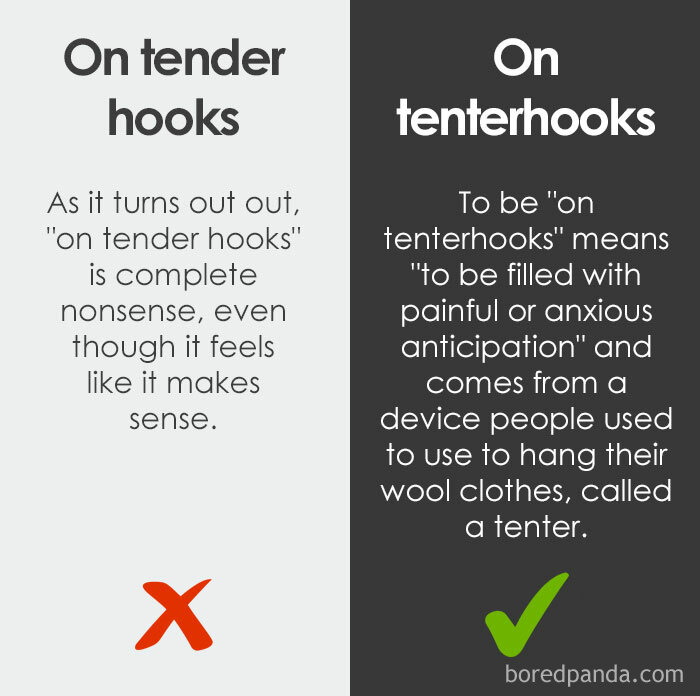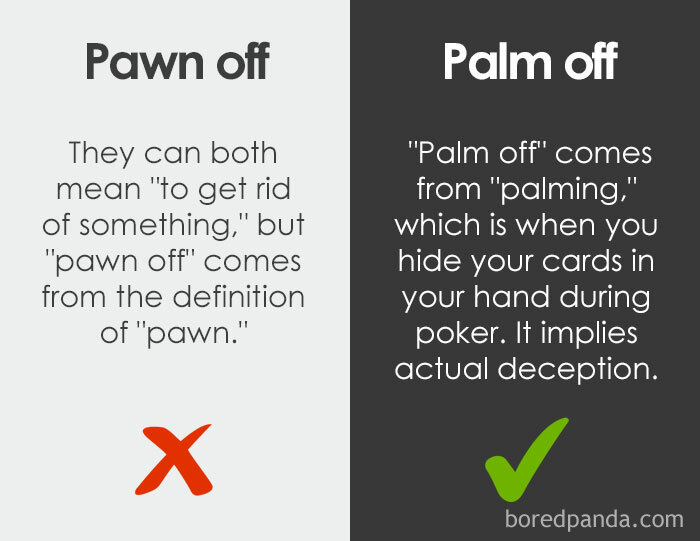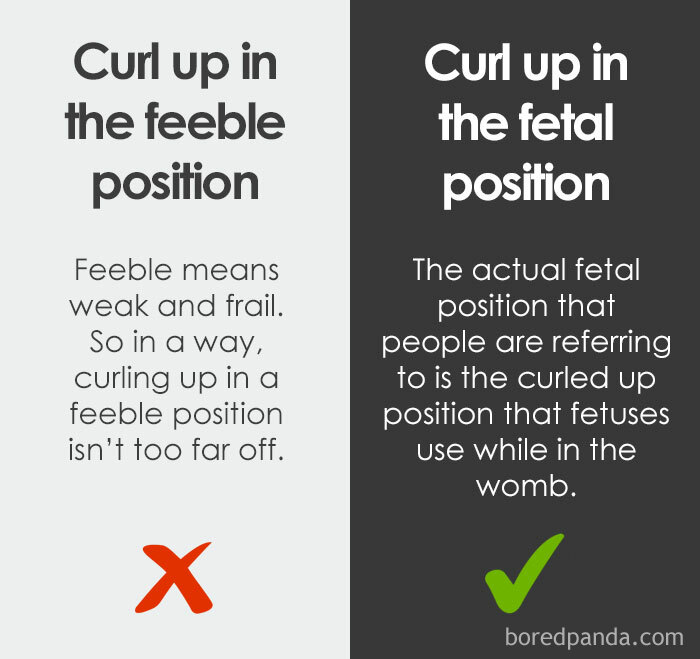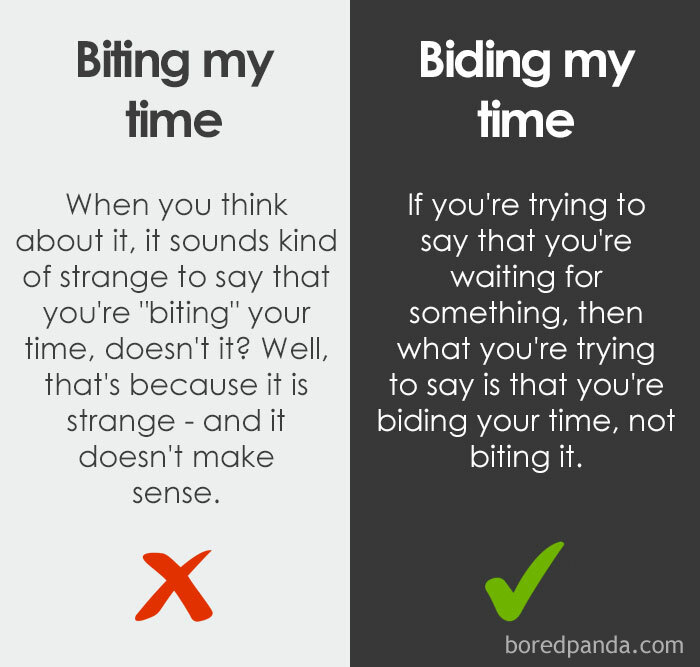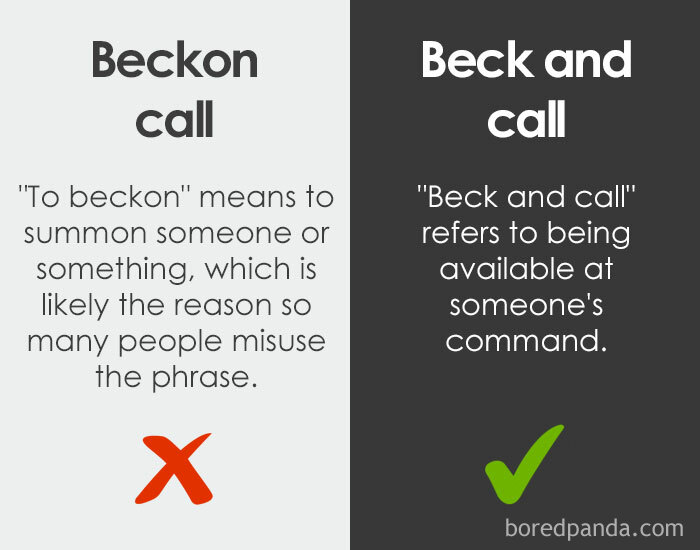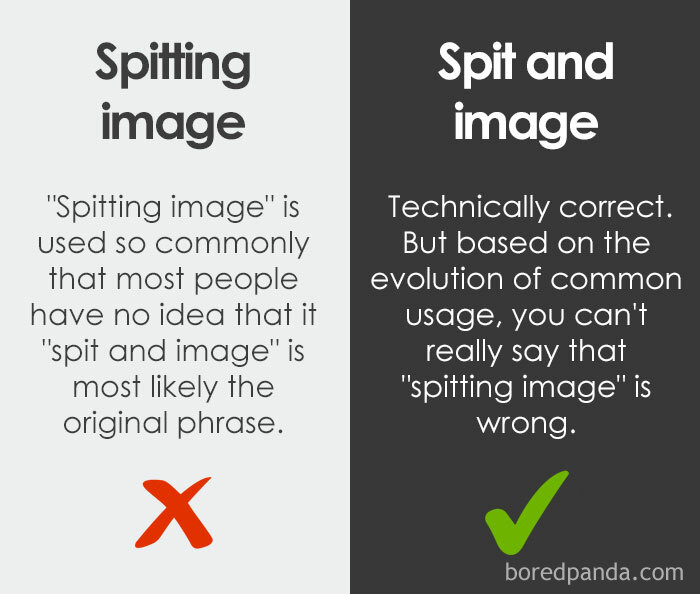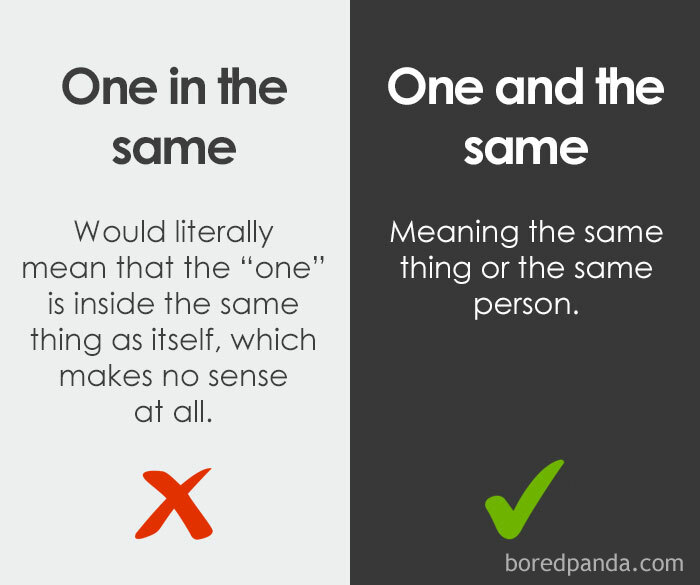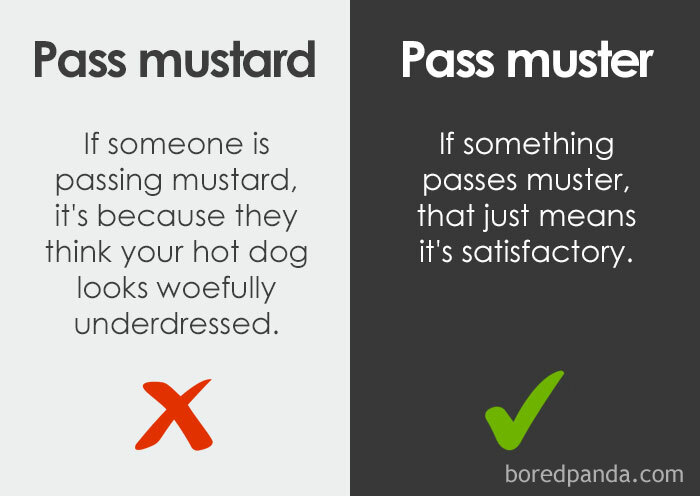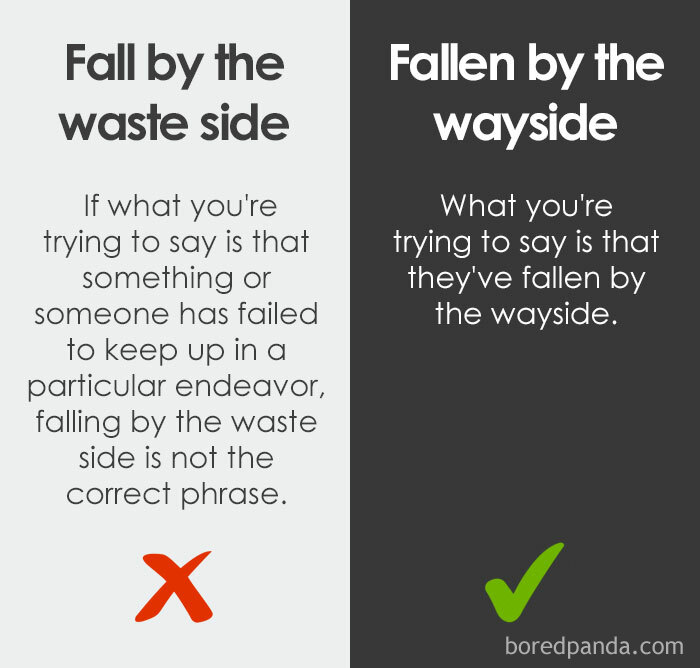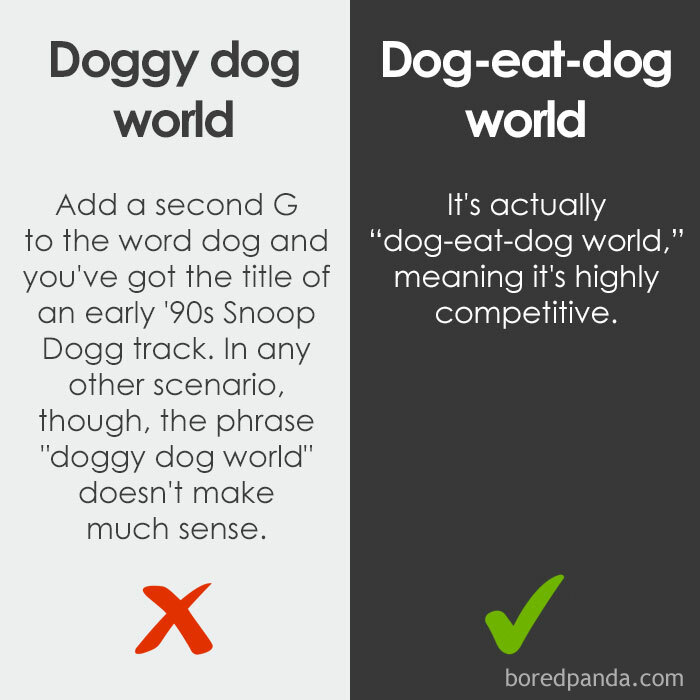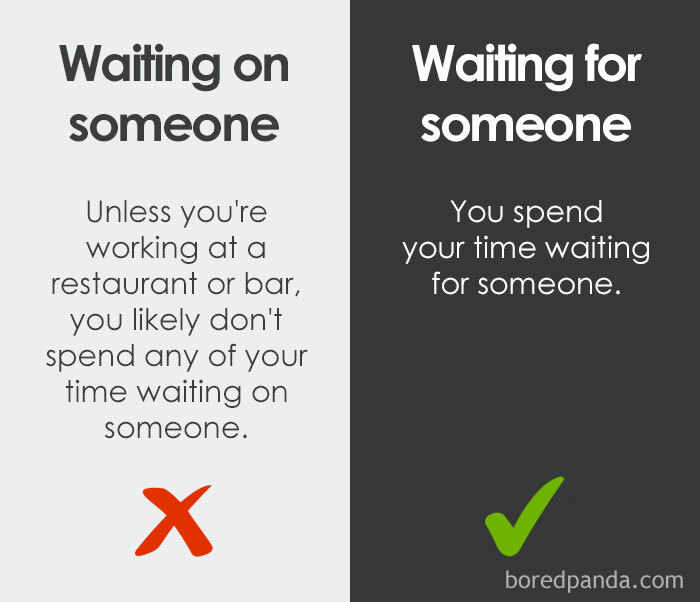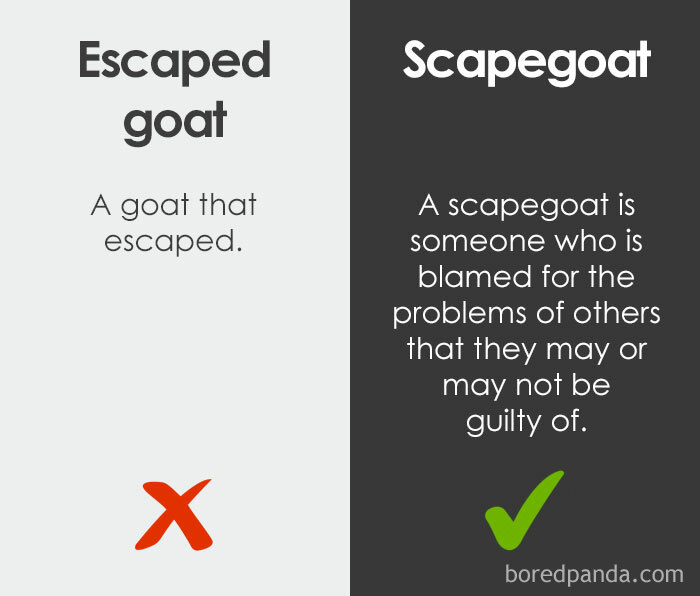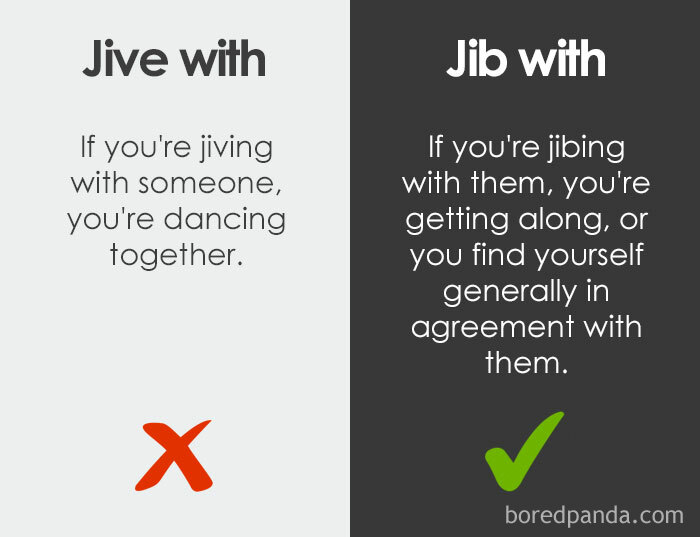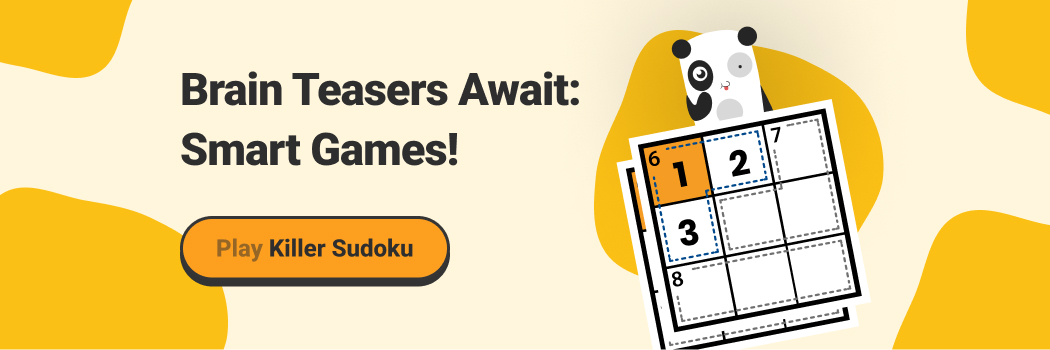No one was born perfect when it comes to language. We say one thing when we mean entirely another. We mix up words, add endings, and pretend it’s all fine. Well, not quite.
You see, even though some phrases roll off the tip of the tongue as if they were almost identical, it doesn’t mean they are. From hunger pains to hunger pangs and sleight of hand to slight of hand, there are too many common phrases that are way more confusing than they really should be.
So this time, we’re gonna look at the most common mistakes we make when using these phrases, and hopefully, learn something that would have made our English teachers proud.
This post may include affiliate links.
We all have that one phrase or two (or too many) that pop into the conversations we have with people. These go-to expressions surely add some style to whatever we’re saying unless they’re used the wrong way.
But the more we use them, the more unaware we become of these repetitive language slip-ups. And honestly, our interlocutors are often unaware of the fact as well. Think of how many times you've heard someone say “I could care less.” In fact, this means the exact opposite as meant by the right usage “I couldn’t care less.”
Other common phrases people confuse very often are “tongue and cheek” (should be tongue in cheek), “for all intensive purposes” (should be “for all intents and purposes”), “another thing coming” (the right way is “another think coming.”)
Even though the misused phrases may be annoying to some sharp-eared listeners, they are never harmful or intentional.
But there are some common phrases that can never work in any conversation and they can definitely turn your encounter sour. For example, saying “you look good for your age,” “this might sound stupid, but…” or “you’re so…” this and that, can be interpreted in a bad way.
So in the end, it’s never really about language and grammar, but rather the content and the way you say it that really matters in a fruitful and pleasant conversation.
'Fine-toothed comb' is often used incorrectly as a 'fine tooth comb' or even as 'tooth comb'
I love good grammar. Can’t help but cringe when words are used incorrectly.
Somewhere, my English teachers are rejoicing. And scolding. And rejoicing.
A more subtle one that drives me nuts: when talking about someone facing a dilemma, people will say "He had to choose between (good thing) and (bad thing)." Um, that's not a dilemma - just choose the good thing!! For it to be a dilemma, the choice has to be between two good things (only one of which you can have) or two BAD things (only one of which you can avoid). For instance, some program I watched said "...he was forced to choose between defending his life's work and betraying his protege." That'd be an easy one - defend your life's work INSTEAD OF betraying your protege. What they MEANT was "he was forced to choose between defending his life's work and being loyal to his protege."
Another classic from {mostly} americans is 'voila', so many spell it like they try to pronounce it, Wa La, So wrong !
I used to Beta read fanfiction so I think I've seen all the incorrect versions of these at some point.
I barely know the difference between week and weak so this rlly helped lol
This comments section passed the vibe check more than any other I’ve seen. Good job, y’all.
I only found two I might have used the wrong version of, and english itsn't my first language. That being said, I rarely use ANY of there, correct or incorrect
Apologies if someone already covered this, but... the one that makes me nuts is when someone refers to a modified car, for example, as “souped up.” WTF? You added chicken soup to it, did you now? You meant “suped up” as in rendered super-duper by virtue of the application of superior enhancements.
How about “show stopper” being used negatively, to imply that a project will be stopped, when the correct meaning of “show stopper” is actually positive, i.e. the highlight of the show. This may be peculiar to second language English European corporations.
Duck tape! Don’t know why they think it has something to do with ducks. It’s “duct” to wrap around joins and seal ducts.....
As a Russian, I mostly use English in written form, so it was really interesting to know the incorrect versions too :)
My favorite is when people say a difficult action or scenario is a "tough road to hoe." It is actually, of course, "row to hoe," but it is technically HARDER to hoe a road than a row in a graden.
These are all good. Mock my words, I have seen them all. However, I was somewhat disappointed not to see strait-laced/strait jacket and camaraderie, not comradery.
If you liked this post, then you will also enjoy this list of 100 EGGCORNS (that was a new word for me) https://www.documentcloud.org/documents/2090909-eggcorns.html
I cringe when I hear the comparative and superlative misused on BBC Radio 4... every day I hear at least an example or two. I think a lot of mistakes in the use of language is due to laziness and the promulgation of poor habits...
I am honestly struggling to believe that somehow, the more prevalent misunderstanding between the antonyms entitled and self-entitled does not appear on this list.
"Sooner than later" is the one that drives me nuts. It's "sooner *rather* than later"!
This maybe goes to show that people don't read as much anymore, so the words get passed orally, hence the mistakes (mostly similar phonetically). I learned English as a foreign language from the age of 15, so mainly in books and grammars, so I actually knew most of the correct answers here (not to brag ;) just to prove my point of "oral" vs "written" learning)
People who say ‘third world problems’ instead of ‘first world problems’.
He cut off his nose to spite his face is one I use a lot to describe people who are passive aggressive...because it's an excellent description of passive aggression. Most people have no idea what I'm saying, and one friend thought I meant Despite instead of 'to spite'. A lot of the confusion comes from years of being miss heard, also from learning disorders like dyslexia. 1 in 5 people are dyslexic, I'm one of them, so some of those I've messed up. I love things like this which help me correct my knowledge.
It drives me nuts when I hear people say "whenever I came here" or "whenever I was 5". WHEN!!! It's "when I came here" and "when I was 5"
Only number 12 for me, although it's a word I don't think I've ever used in full, referring instead to expats. And shoo-in is a word I've never used or heard used either..
Many are the result of mishearing someone who didn't speak clearly. This can easily happen even with native speakers let alone those learning English as a second language.
My pet peeve is when people use "draws" instead of "drawers" (like: 2nd hand IKEA drawers on sale...)
Dear fellow Panda's before making declarative statement about the existence of eggcorns based on ones own personal experience please consider doing a quick google books ngram search you may discover something unexpected... like the fact "Bored Panda" has not appeared anywhere in the google library or boring cocktail factoids like the word bored appeared in the text consistently more than the word panda until 1980.
I think half of these were just made up! I think there are more annoying errors, like "supposably" and "irregardless".
'Fine-toothed comb' is often used incorrectly as a 'fine tooth comb' or even as 'tooth comb'
I love good grammar. Can’t help but cringe when words are used incorrectly.
Somewhere, my English teachers are rejoicing. And scolding. And rejoicing.
A more subtle one that drives me nuts: when talking about someone facing a dilemma, people will say "He had to choose between (good thing) and (bad thing)." Um, that's not a dilemma - just choose the good thing!! For it to be a dilemma, the choice has to be between two good things (only one of which you can have) or two BAD things (only one of which you can avoid). For instance, some program I watched said "...he was forced to choose between defending his life's work and betraying his protege." That'd be an easy one - defend your life's work INSTEAD OF betraying your protege. What they MEANT was "he was forced to choose between defending his life's work and being loyal to his protege."
Another classic from {mostly} americans is 'voila', so many spell it like they try to pronounce it, Wa La, So wrong !
I used to Beta read fanfiction so I think I've seen all the incorrect versions of these at some point.
I barely know the difference between week and weak so this rlly helped lol
This comments section passed the vibe check more than any other I’ve seen. Good job, y’all.
I only found two I might have used the wrong version of, and english itsn't my first language. That being said, I rarely use ANY of there, correct or incorrect
Apologies if someone already covered this, but... the one that makes me nuts is when someone refers to a modified car, for example, as “souped up.” WTF? You added chicken soup to it, did you now? You meant “suped up” as in rendered super-duper by virtue of the application of superior enhancements.
How about “show stopper” being used negatively, to imply that a project will be stopped, when the correct meaning of “show stopper” is actually positive, i.e. the highlight of the show. This may be peculiar to second language English European corporations.
Duck tape! Don’t know why they think it has something to do with ducks. It’s “duct” to wrap around joins and seal ducts.....
As a Russian, I mostly use English in written form, so it was really interesting to know the incorrect versions too :)
My favorite is when people say a difficult action or scenario is a "tough road to hoe." It is actually, of course, "row to hoe," but it is technically HARDER to hoe a road than a row in a graden.
These are all good. Mock my words, I have seen them all. However, I was somewhat disappointed not to see strait-laced/strait jacket and camaraderie, not comradery.
If you liked this post, then you will also enjoy this list of 100 EGGCORNS (that was a new word for me) https://www.documentcloud.org/documents/2090909-eggcorns.html
I cringe when I hear the comparative and superlative misused on BBC Radio 4... every day I hear at least an example or two. I think a lot of mistakes in the use of language is due to laziness and the promulgation of poor habits...
I am honestly struggling to believe that somehow, the more prevalent misunderstanding between the antonyms entitled and self-entitled does not appear on this list.
"Sooner than later" is the one that drives me nuts. It's "sooner *rather* than later"!
This maybe goes to show that people don't read as much anymore, so the words get passed orally, hence the mistakes (mostly similar phonetically). I learned English as a foreign language from the age of 15, so mainly in books and grammars, so I actually knew most of the correct answers here (not to brag ;) just to prove my point of "oral" vs "written" learning)
People who say ‘third world problems’ instead of ‘first world problems’.
He cut off his nose to spite his face is one I use a lot to describe people who are passive aggressive...because it's an excellent description of passive aggression. Most people have no idea what I'm saying, and one friend thought I meant Despite instead of 'to spite'. A lot of the confusion comes from years of being miss heard, also from learning disorders like dyslexia. 1 in 5 people are dyslexic, I'm one of them, so some of those I've messed up. I love things like this which help me correct my knowledge.
It drives me nuts when I hear people say "whenever I came here" or "whenever I was 5". WHEN!!! It's "when I came here" and "when I was 5"
Only number 12 for me, although it's a word I don't think I've ever used in full, referring instead to expats. And shoo-in is a word I've never used or heard used either..
Many are the result of mishearing someone who didn't speak clearly. This can easily happen even with native speakers let alone those learning English as a second language.
My pet peeve is when people use "draws" instead of "drawers" (like: 2nd hand IKEA drawers on sale...)
Dear fellow Panda's before making declarative statement about the existence of eggcorns based on ones own personal experience please consider doing a quick google books ngram search you may discover something unexpected... like the fact "Bored Panda" has not appeared anywhere in the google library or boring cocktail factoids like the word bored appeared in the text consistently more than the word panda until 1980.
I think half of these were just made up! I think there are more annoying errors, like "supposably" and "irregardless".

 Dark Mode
Dark Mode  No fees, cancel anytime
No fees, cancel anytime 




